KCSDV’s Summer 2020 Newsletter
- August 10, 2020
- Posted by: Lucca Wang
- Categories: 2020, All News & Blog Posts, Newsletters
In this newsletter:
KCSDV COVID-19 Update
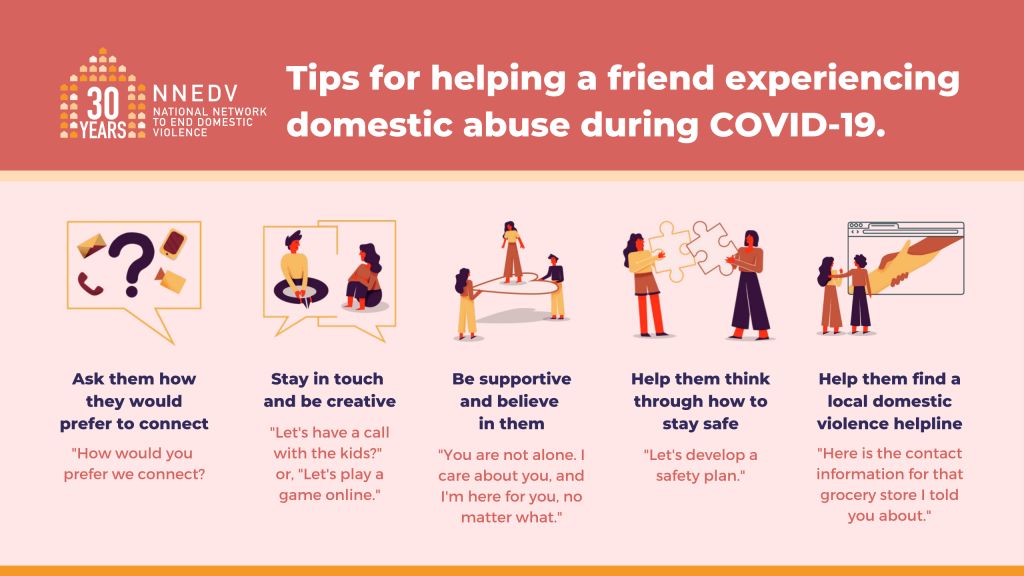
Friends and Partners:
KCSDV continues to monitor the COVID-19 pandemic, making changes and adjustments as needed. KCSDV has developed resources, hosted training, and provided technical assistance to meet the ongoing needs for victim services during the pandemic.
KCSDV remains open and ready to help you with your needs. You can reach us through our main phone line at 785-232-9784 and via message through our website. Normal office hours continue to be Monday through Friday at
8:30 a.m. – 5 p.m.
Here’s a summary of some things we have been doing:
- After working completely remotely since mid-March, KCSDV staff returned to the office in June. Staff are on a rotating schedule between working in the office and remotely to maintain physical distancing and to allow for daily sanitizing practices. Guests are currently not allowed inside the building, and facemasks are required in all common areas. Staff are in the office Monday – Thursday and remote on Friday.
- KCSDV has been working quickly to adapt in-person training, site visits, meetings, and events to virtual and will continue to do so through the end of 2020. For upcoming training opportunities, visit KCSDV’s Training & Events page.
- KCSDV is working closely with our member domestic violence and sexual assault victim advocacy programs throughout the state to support their needs during this pandemic. KCSDV meets weekly with programs and is identifying and addressing the need for adaptations to victim services.
This includes evaluating and acquiring the necessary platforms and technologies for confidential tele-advocacy services and increasing awareness about the availability of victim services during the pandemic. Visit our COVID-19 Resource Page to learn more.
Update on Victim Services in Kansas:
- The sexual and domestic violence victim advocacy programs across the state are continuing to provide direct victim services and have done so throughout the pandemic. Some advocates and staff have returned to their offices with many public health safety precautions in place and, since the COVID-19 numbers have continued to go up, some are returning to providing more remote services.
- Adaptations to services vary by community as they continue to monitor local COVID-19 infections. Some in-person services have been modified to be provided virtually or are provided in other ways.
- Check with your local program to find out how best to access victim services during the pandemic.
- Ask how you can help. They may be limited in their ability to take in and sanitize material donations, but monetary donations are always welcome and can assist in offsetting increased costs associated with this pandemic.
- The Kansas Crisis Hotline is available 24/7 at 1-888-END-ABUSE, or 1-888-363-2287.
KCSDV supports the efforts to reduce the spread of COVID-19 to our families and communities. We appreciate all our partners, health care professionals, first responders, and public officials who are making difficult decisions during these times. We support wearing masks, reducing physical contact with others, washing hands, and sanitizing surfaces.
We will keep you posted as we have additional information or if things change for KCSDV. Please take care of yourself and your family, loved ones, and communities during this time. For any questions, please contact coalition@kcsdv.org.
For information on developing your own response, visit the Kansas Department of Health and Environment’s coronavirus response page as well as the CDC’s website.
The 2020 Legislative Session
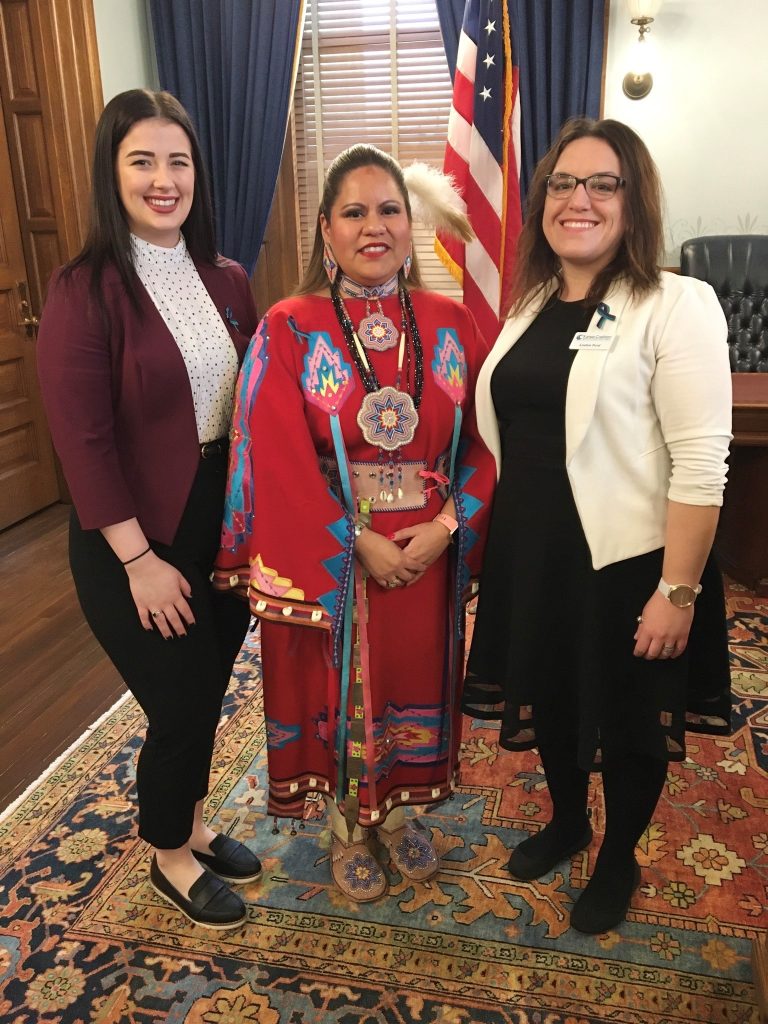
As always, KCSDV worked to advocate on behalf of the interests of survivors. We offered testimony on several important issues, and we were on track to create some significant changes in the state. However, everything unexpectedly shut down due to the COVID-19 pandemic. The bills on which we worked have been set aside, and with our partners, we will address them again next year.
Three bill highlights that we look forward to advocating for again next year:
1. House Bill (HB) 2646 was designed to increase adequate tracking for missing and murdered Indigenous women, a first step in addressing this issue in Kansas.
2. Senate Bill (SB) 404 would have created a process for terminating the parental rights of a rapist to a child conceived through rape.
3. HB 2467 would have finally removed the spousal exception to sexual battery from Kansas statutes.
KCSDV also spent some time advocating against the passage of other legislation. The most notable was SB 157. This bill would create a presumption in favor of 50/50 shared parenting time. The bill did contain an exception for cases of domestic violence. Even with the exception, the creation of a presumption in favor of shared parenting time would create a significant hurdle for survivors to overcome to keep themselves and their children safe. We will continue to oppose this measure in any form in the future.
Despite the abrupt ending to this year’s legislative session, we were able to have significant conversations with legislators about the important issues that survivors across Kansas still face. Any opportunity we have to work with those who have the ability to enact laws that result in real change is a victory for survivors across the state. As always, please contact KCSDV with any suggestions for legislative priorities for next year.
Meet the Four New Directors of KCSDV Coalition Member Programs
There are 25 KCSDV coalition member programs, which are direct sexual and domestic violence victim services providers, located in cities and communities across the state. Four of the programs happen to have new directors who were hired during the pandemic. Welcome to all of them!
1. Brooke Powell, Safehouse Crisis Center, Pittsburg
Start date: April 25, 2020

Background: She worked as Program Director at Safehouse Crisis Center from 2015-2020. She was also a Victim Advocate there from 2009-2015. She earned a Bachelor’s degree in General Studies from Pittsburg State University. Brooke says, “Advocacy really shaped who I am today.”
Fun fact: Exercise running is her newest adventure!
2. Lori Randall, Alliance Against Family Violence, Leavenworth
Start date: February 17, 2020
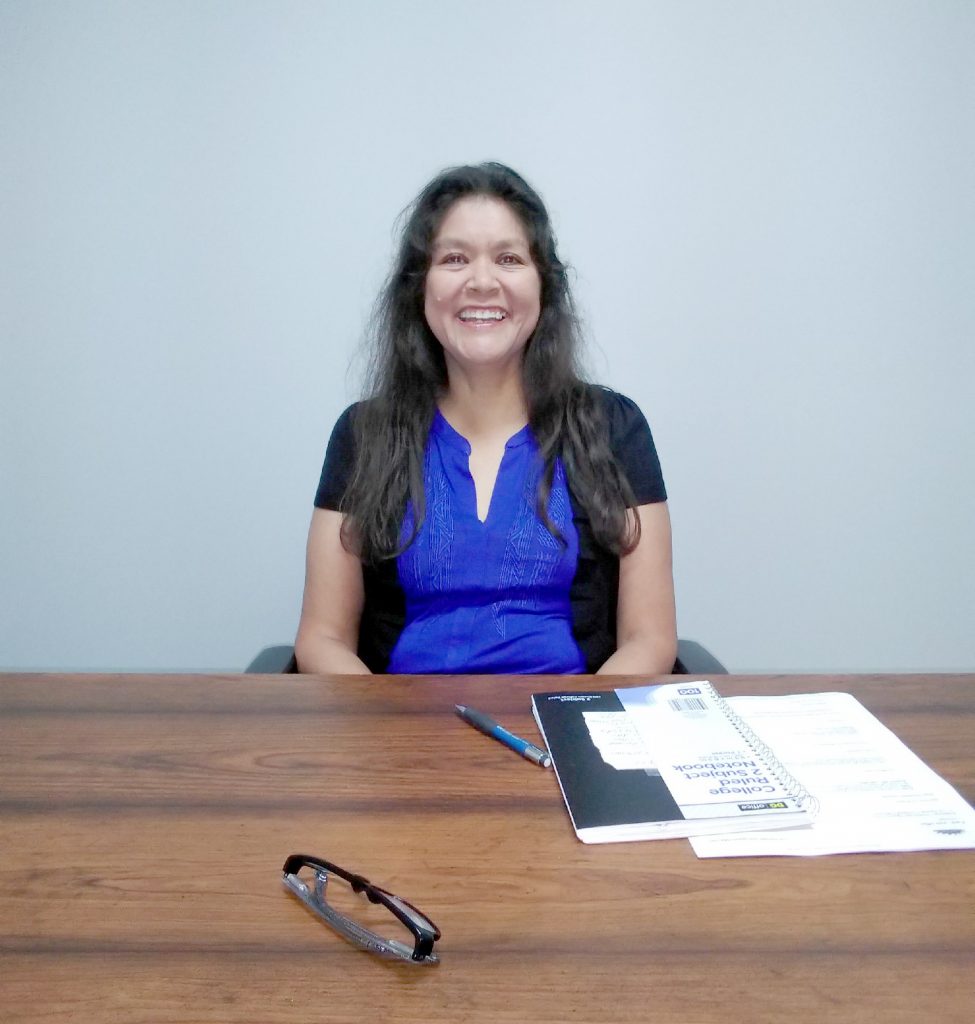
Background: She worked for Prairie Band Potawatomi Nation Tribal Victim Services as the lead victim advocate. Prior to that, she was the executive director for a tribe in Kansas. She has also been a grant writer and court administrator for various tribes in Kansas. She co-founded Four Tribes Law Symposium. Last year, she graduated from National Tribal Trial College and can now represent clients in civil and criminal court as a tribal legal lay advocate. She earned a Bachelor of Science degree and a Master of Science degree, both in Criminal Justice, from Washburn University.
Fun fact: She has seven grandchildren: two in Canada and five in Maryland!
3. Kimberly Ratzlaff, Safehope, Newton
Start date: April 27, 2020
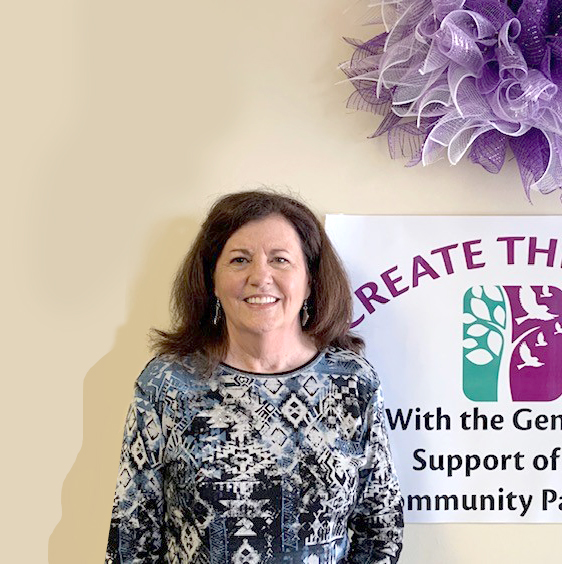
Background: She was a human resources consultant. Prior to that, she was the director of human resources at a small company in Wichita. She used to work for Sedgwick County. She earned a Bachelor’s degree in Psychology with a minor in Business and a Master of Science degree in Industrial Psychology from Emporia State University.
Fun fact: She is a “motorcycle mama”!
4. Becca Spielman, YWCA Center for Safety and Empowerment, Topeka
Start date: May 1, 2020
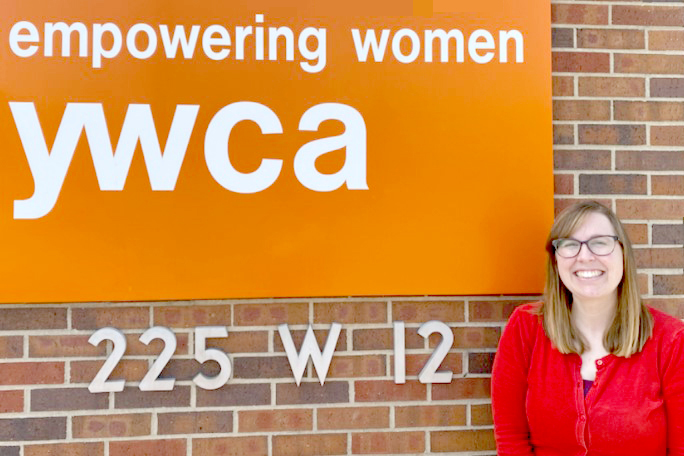
Background: She served as a Field Director for Communities In Schools of Mid-America, Inc. for three and a half years. Prior to that, she was the Director of Volunteer Services and the Director of Survivor Services at the Willow Domestic Violence Center in Lawrence for five and a half years. She earned a Master of Education degree in Adult and Higher Education from of the University of Missouri – St. Louis, a Master of Social Work degree from Washington University in St. Louis, and a Bachelor of Applied Science degree in Human Services from Washburn University.
Fun fact: The loves of her life (besides her partner and son) are her five “furbabies”!
KCSDV’s Rural Project
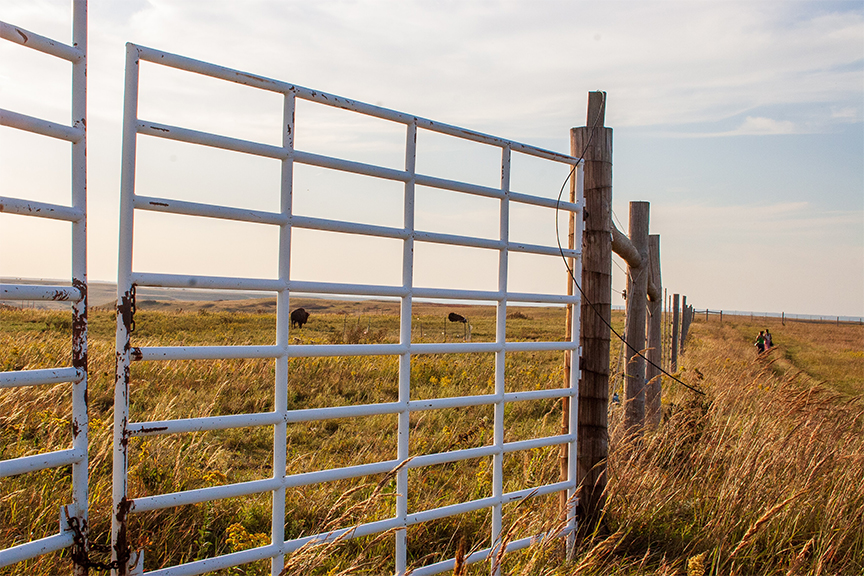
Most of Kansas’ 105 counties are frontier or rural. In remote rural areas, victims and survivors of sexual and domestic violence can have significant barriers to getting support and accessing help. To counter these barriers, KCSDV’s Rural Project addresses the need for both a coordinated community response to sexual and domestic violence and for specific outreach to sexual and domestic violence victims and survivors within those communities who may be experiencing social and geographic isolation.
KCSDV’s Rural Project helps local domestic violence and sexual assault services programs to address the lack of a coordinated community response within their area. It also helps them build on what may be present but needs to be stronger. By building and encouraging coordinated community response teams, local services and system responses can be more consistent, more victim-centered, and more trauma-informed. Because resources are limited, when a victim or survivor reaches out in a rural community, it may be the first and last time if the responses are not trauma-informed and coordinated.
Through the Rural Project, KCSDV also strives to improve responses to victims and survivors by examining the intersections between oppression and sexual and domestic violence. The project encourages this by providing information and education on the history of the violence as seen through an anti-oppression framework. This helps communities provide meaningful, holistic services to survivors. Many rural communities would not have access to these national trainings and conversations without the Rural Project.
The Rural Project also works closely with Kansas’ Native American Tribal Nations, including Prairie Band Potawatomi Nation, Sac and Fox Nation of Missouri in Kansas and Nebraska, Kansas Kickapoo Tribe, and Iowa Tribe of Kansas and Nebraska. The Delaware Tribe of Indians has an established tribal office in Caney and provides services throughout that southeastern area of Kansas.
In 2019, KCSDV trained 226 professionals through the Rural Project, including those in remote rural communities and Tribal communities. Those attending included advocates, victim witness coordinators, law enforcement, attorneys, prosecutors, medical professionals, sexual assault nurse examiners, and many more.
Training topics included:
- The importance of plain language and how using plain language improves services for survivors who have a limited proficiency in English or who have disabilities.
- Increasing outreach and engagement.
- Law enforcement response.
- Understanding trauma.
- Language access for all victims of crime.
- Strengthening services through successful collaboration.
- Examining the intersections of oppression, ‘isms, and violence to improve responses.
Through the organization’s Rural Project, KCSDV offers tools and resources to strengthen collaboration with multidisciplinary partners, expand services to survivors, and build capacity based on best practices.
The KCSDV Rural Project is funded by the U.S. Department of Justice, Office on Violence Against Women.
Glad You Asked: What are Lethality Assessments?

A lethality assessment is a screening tool that identifies when a victim may be in danger or at high risk of being killed or seriously injured by the perpetrator of domestic violence.
Attempts to consistently evaluate the risk of homicide in domestic violence cases began in the 1980s. Barbara Hart and Jacquelyn Campbell independently created lists of known risk factors for victims. These factors typically occurred prior to domestic violence homicides. This research paved the way towards future research into the topic of lethality assessment and the creation of lethality assessment protocols. Lethality assessment protocols are now being used to support collaborative intervention between local police departments and local domestic violence victim advocacy programs.
Law enforcement and other first responders can use the lethality assessment questions to help identify when an individual is in extreme risk or danger. Once an individual is identified as being in a highly lethal relationship, they are given additional information and directly offered services. Successful community implementation of a lethality assessment protocol includes creating a plan for all those involved in assisting survivors to ensure each survivor is given the access to services, especially those experiencing potentially lethal violence.
Identifying lethality, making the referral, and providing the services helps ensure those in the greatest danger will have a better chance for safety and survival.
Domestic violence remains a serious issue in the United States and across the world. On average, nearly 20 people are physically abused by an intimate partner every minute in the United States. In 2018, Kansas experienced one domestic violence incident every 21 minutes, 50 seconds. Additionally, thirty-seven homicides occurred as a result of domestic violence in 2018.
Resources
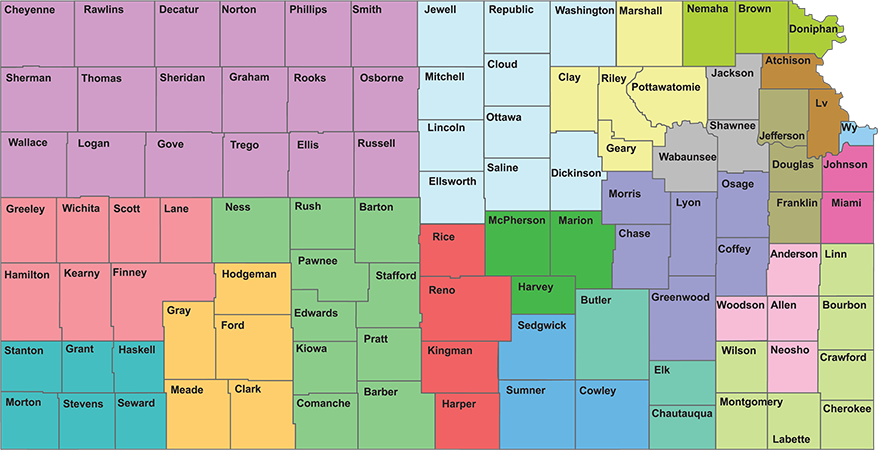
This project was supported by Grant No. 2019-MU-AX-0021 awarded by the Office on Violence Against Women, U.S. Department of Justice. The opinions, findings, conclusions, and recommendations expressed in this publication are those of the author(s) and do not necessarily reflect the views of the Department of Justice, Office on Violence Against Women.
KANSAS CRISIS HOTLINE: 888-END-ABUSE | 888-363-2287
Last Updated on Aug 10, 2020